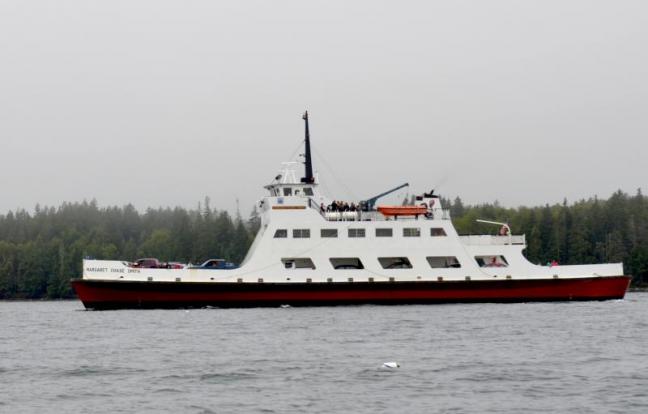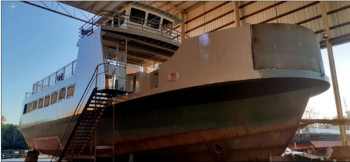After extensive analysis and public communication, the Maine Department of Transportation has adopted a new fare structure for the Maine State Ferry Service (MSFS). When it becomes effective, this new fare structure will increase annual fare revenue by approximately 18.4 percent.
Revenues collected through fares and parking fees pay half the total operating costs of the MSFS, according to MDOT, in a news release. Pursuant to Maine law, the state Highway Fund subsidizes the other half of the operating costs. Accordingly, the subsidy will also increase by approximately 18.4 percent. The projected total annual operating costs of the MSFS over the next four years that were as used as the basis of this fare structure ranged from $15.5 million to $16 million.
This is the first fare increase since 2019, when fares then increased by about 17 percent. Since then, MSFS operating costs have increased significantly with inflation, according to MDOT. The major contributors to higher operating costs projected in this fare increase were negotiated personnel pay increases, fuel, and vessel repairs.
Ticket price increases were weighted higher for the limited and high-demand slots for cars and trucks than for passengers and higher in the peak season of June through September.
The adoption of this new fare structure follows months of analysis, communication with the Ferry Service Advisory Board, and public process pursuant to the state's rulemaking process. If all required administrative processes take place as planned, the new fare structure will take effect on August 1, 2024.
In addition to operating costs, state and federal funds will continue to pay for 100 percent of the costs of capital expenditures at the MSFS. This includes the costs of shoreside infrastructure and new vessels. There are currently three new vessels in various stages of production. Combined, these vessels and shoreside infrastructure represent an investment of more than $100 million in state and federal funds.
Since the development of this new fare schedule, MSFS staffing challenges due to a tight maritime labor market nationally have led to numerous cancellations that have primarily impacted one of the two ferries serving Vinalhaven daily. MaineDOT anticipates needing more funding to cover anticipated compensation increases to MSFS crew members and contracted staffing costs necessary to minimize the cancellation of ferry trips. The details of these additional costs are still being defined and quantified, but they are substantial and were not considered in this newly adopted rate structure. Accordingly, it is anticipated that another public fare increase rulemaking process will need to start soon - perhaps as early as this fall - to account for increased staffing costs.
The goal of this upcoming rulemaking process will be to have a fiscally sustainable MSFS operational budget that complies with statutory cost shares in effect by June 1, 2025.

































